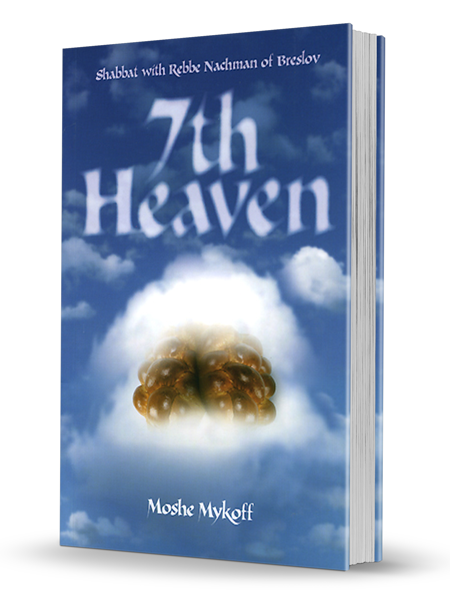
Tazria: Meeting the Tzaddik
God doesn't punish; He educates us, leads us on the right path, and helps us attain our necessary tikkun, or soul correction, so that we'll be worthy vessels...

"If an affliction of leprosy will be in a person, he will be brought before a Kohen" (Vayikra 13:9)
God doesn't punish; He educates us, leads us on the right path, and helps us attain our necessary tikkun, or soul correction, so that we'll be worthy vessels of His Divine light, both in this world and the next. As such, God directs our lives with unfathomable lovingkindness and mercy.
The casual observer may ask, "Granted, a person must be punished for slander; but leprosy? That's a terrible affliction! Why is a person afflicted with leprosy for gossiping?" [editor's note, although tzaraat is commonly translated as "leprosy" it was really a spiritual disease that only superficially resembled the physical ailment of leprosy.
The answer is twofold: First, loshon hora, or the "evil tongue" that is guilty of slander and gossip, leaves a terrible blemish on the soul that corresponds to the manifestation of the physical disease. Only the atonement and correction process of the soul will lead to a physical cure. In that light, the tzaraat is a "favor" from God to help a person correct a spiritual blemish that otherwise would have gone uncorrected.
Second, only a Kohen is qualified to determine whether a person has tzaraat. Consequently, a person with suspected tzaraat is "brought before a Kohen," even against his wishes. Under normal circumstances, that person may have never gone to the Kohen. But since a connection with a Kohen is critical for that person's spiritual health, God afflicts him with tzaraat so he is forced to visit the Kohen.
Our sages teach us that every mention of the Kohen in the Torah alludes to the true tzaddik of each generation. Homiletically, if a person doesn't go on his own accord to see a true tzaddik, God sends him a difficulty in life, a proverbial tzaraat – whether in health, livelihood, or in family troubles – that compels him to seek help and relief from the tzaddik.
Reb Nosson of Breslov writes (Likutei Etzos, Tzaddik, 10), that a person's clogged heart and blind eyes block out truth and prevent him from repenting, from doing teshuva. But after clinging to a tzaddik and accepting the tzaddik's advice, one's faculties are opened to truth and the individual is privileged to repent.
According to the above principle, visiting a true tzaddik is vital for a person's spiritual welfare, as we shall see in the following parable:
Mendel the "milchiker" (dairyman) barely scraped together a livelihood from his three cows, two of which were well on the way to the endless green pastures of cow heaven. He worked from way before dawn to well after dusk, milking the cows, churning butter, delivering the milk, taking the cows out to pasture, and bringing them back to the barn at night.
Mendel barely had enough to feed and clothe his wife and three daughters. He had no idea where he'd get the wherewithal to put together a decent dowry for his eldest daughter, who had now reached marital age, let alone the two other sisters that were next in line. He would need at least five hundred crowns for each girl.
Late one evening, Mendel was startled by someone fiercely pounding on his front door. Three mean-looking policemen issued him a royal warrant to appear in a Bucharest courtroom in seven days time. A lump clogged his throat. "W-what did I do w-wrong?" he stammered.
The officer grunted, "Don't ask questions; just show up on time!"
Mendel spent the next seven days praying and fasting as if Yom Kippur were just around the corner. His heart pounded harder as each day passed. He had no idea what Bucharest had in store…
On the appointed day, he arrived in court. The Judge addressed him, "Mendel Mashevitz from Anatolia, son of Chatzkel, step forward!"
Mendel could barely stand on his wobbly knees. He winced and held his breath, prepared for the worst…
"Your great uncle Moses Mashevitz has died," said the judge. "You are the next of kin. The state awards you the inheritance of two thousand crowns, of which 500 shall be paid in inheritance tax. You are hereby granted 1500 crowns…case closed!"
Poverty-stricken Mendel the milchiker would have never initiated going to the Bucharest courtroom on his own. The seemingly bad summons proved to be the blessing of his life. By the same token, a person may not realize the importance of seeing a tzaddik. Yet, when the Almighty sends a "summons" – some trouble that only a tzaddik's blessings can help –the person goes to the tzaddik and attains his or her true soul correction, the blessing of their lives. May the Almighty enable us to be always attached to the true tzaddikim, amen.











Tell us what you think!
Thank you for your comment!
It will be published after approval by the Editor.